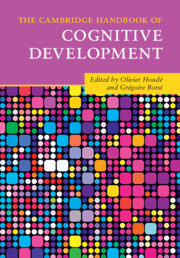Book contents
- The Cambridge Handbook of Cognitive Development
- The Cambridge Handbook of Cognitive Development
- Copyright page
- Contents
- Figures
- Tables
- Contributors
- Introduction
- Part I Neurobiological Constraints and Laws of Cognitive Development
- Part II Fundamentals of Cognitive Development from Infancy to Adolescence and Young Adulthood
- Part III Education and School-Learning Domains
- Index
- Plate Section (PDF Only)
- References
Introduction
Cognitive Development Studies: From the History of Psychology to the Current Trends in Cognitive Sciences
Published online by Cambridge University Press: 24 February 2022
- The Cambridge Handbook of Cognitive Development
- The Cambridge Handbook of Cognitive Development
- Copyright page
- Contents
- Figures
- Tables
- Contributors
- Introduction
- Part I Neurobiological Constraints and Laws of Cognitive Development
- Part II Fundamentals of Cognitive Development from Infancy to Adolescence and Young Adulthood
- Part III Education and School-Learning Domains
- Index
- Plate Section (PDF Only)
- References
Summary
The history of cognitive development studies began with the Greek philosopher Plato (Houdé, 2019). In the centre of Raphael’s famous fresco, The School of Athens (1512) in the Vatican Museum in Rome, Italy, we see Plato (428–347 BC) and Aristotle (384–322 BC). Plato is pointing upwards to the ‘Heaven of Ideas’, while Aristotle, his pupil at the Academy, stretches his hand forward, symbolizing the earthly world. Indeed, for Aristotle (who does not believe in the Ideas as such), the general and the particular are transmitted here.
- Type
- Chapter
- Information
- The Cambridge Handbook of Cognitive Development , pp. 1 - 12Publisher: Cambridge University PressPrint publication year: 2022

